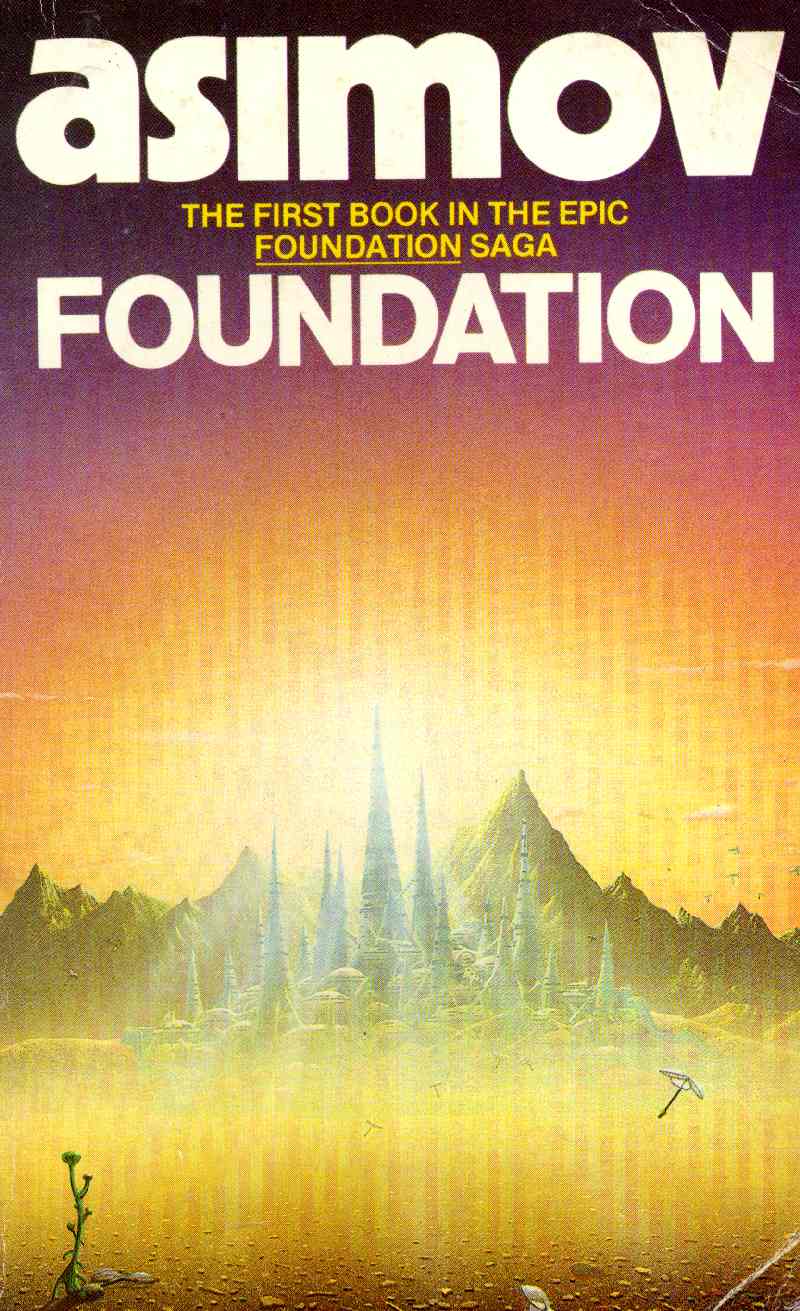I do know when I made the transition to completely serious, grown-up scifi. Aged 13, we made our usual weekly visit to the Boskruin public library. I'd pretty much used up anything even vaguely mature in the kids' section (I had annihilated their whole collection of Asterix and Tintin books in under 3 weeks a couple years earlier), and so started tentatively exploring the grown-up books. Eventually I'd settle around the non-fiction shelves, with books about planes and shit, but I was still a fiction reader back then. I don't know where I got the name Isaac Asimov. Perhaps I grabbed a book at random, perhaps I'd heard a friend mention him, perhaps my mom (not a scifi fan at all) or a librarian had suggested it. But I remember being vaguely intrigued by the blurb on the back, and then seriously intrigued by the time I was a few pages in. And it was all thanks to Air Power.
(See, now it's all convoluted and I lost my build up of narrative, as I digress to explain some unexpected side wossname. Perhaps if I pretend it's intentional, readers will do the hard work for me and keep the bit about Asimov in the back of their minds, while I explain the Air Power connection.)
Air Power was my introduction to politics. As a flight sim fan, I was originally excited by its carrier airships (which are still fucking awesome!), but the game's campaign of conquest soon had me even more immersed. You could opt for a straight military conquest of the whole fictional country of Karanthia, but there were other, subtler methods too. You could use diplomacy to convince individual towns to join your side, and different towns wanted different things from you. If you picked on one religious town, other religious towns would be hostile towards you. Taking out a bandit headquarters would earn you lots of new friends, but would also alienate those secretly in league with them. Secretly in league!
I had just lived through the end of the Cold War, and when I lived in newly-reunited Germany from 1991 to 1993, my first teacher had just been reunited with her family in the East. And then I'd lived through the end of Apartheid; by a funny coincidence, I accompanied my parents when they went to vote in the '94 election at the very same Boskruin library, and spent hours and hours outside making myself sick on the roundabout, while a queue of hundreds or thousands marched slowly past me. But I didn't see the excitement in any of this until Air Power gave me my first taste of what it was like to shape these events myself. Before that, social change was just a thing grown-ups did in the background, but in the game it was suddenly something I could accomplish, and without having to resort to violence every step of the way. After that, I had very little understanding of real politics, but I was keen to learn more.
(Now let's hope they remember the Asimov connection...)
 |
| I believe this was the cover art of the version I read, but frankly, all scifi cover art looks the same, so who knows. |
The following year, my friend Davie's older brother, John, started varsity and I heard reports of him studying politics (along with philosophy, I believe, which was a mysterious, serious affair in my young mind). That was the first I'd heard of that being a real thing-you-could-study. And it sounded really cool; not something I'd consider studying myself (mostly because I didn't consider studying anything til right near the end of high school), but still a cool wossname.
And then it fell out of my mind for a long while. I stopped thinking about the rest of the world and turned inwards, worrying about girls and failing maths and having religion and abandoning religion and whatever else it was that concerned Teenage Sham.
When I dropped out of aeronautical engineering (which I'd rushed into without much thought), I took advantage of the university's career counselling service, and while that was fucking useless (thanks, Myers-Briggs!), I did happen to spot a flyer for the politics department among all the business management crap the counsellor was pushing on me, and it re-sparked some interesting thoughts in me. And so, a few months later, I was enrolled in a BA Politics at the Rand Afrikaans University (now the University of Johannesburg, or Udge). And it was all wrong. I had a timetable crammed with social sciences (politics, development studies, sociology and anthropology), and 3 out of 4 were telling me, "You can't change things. You can't even predict them. So just observe and comment after the fact. (And in the case of the very post-modern Anthro courses, you shouldn't even want to change things, you evil colonialist!)"
Only development studies suggested something very different: Not only could we change society, but we have a responsibility to. In hindsight, it was just about inevitable that I'd go on to do my honours in dev studies, the subject I knew almost nothing about when I signed up for it, because I left that registration to the last minute, just like the engineering before it, and hated for the first year. And now I'm sort of, kind of, vaguely doing my master's in it too. But this is the first time I've sat down and worked out just what led me here. Hopefully that'll help me get this damn thing moving again.
And there you have it: I'm trying to replicate Asimov's psychohistory, so I can win at Air Power, and as a side effect of this, I may make some genuine progress in some real social development. Won't that be nice?
No comments:
Post a Comment